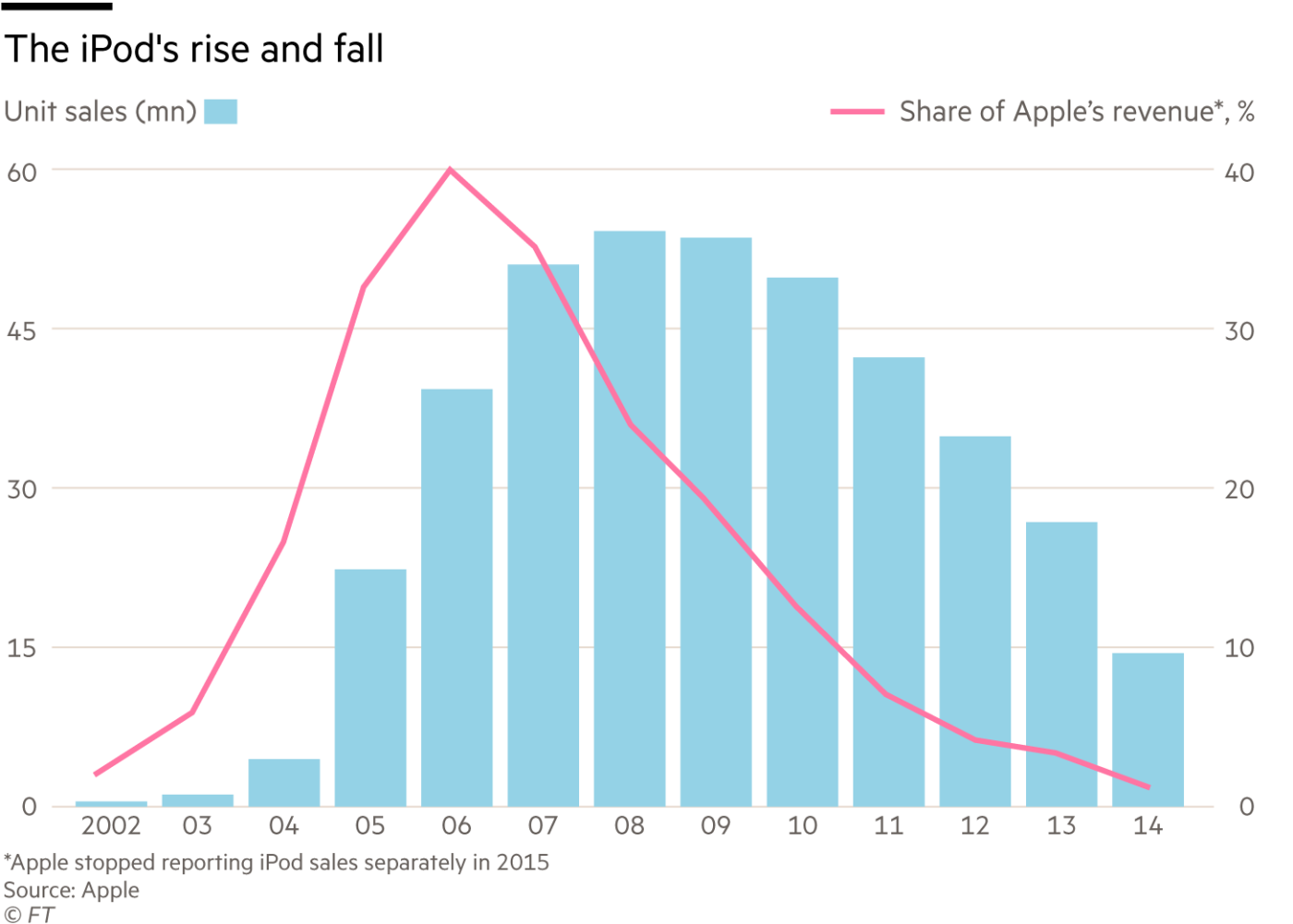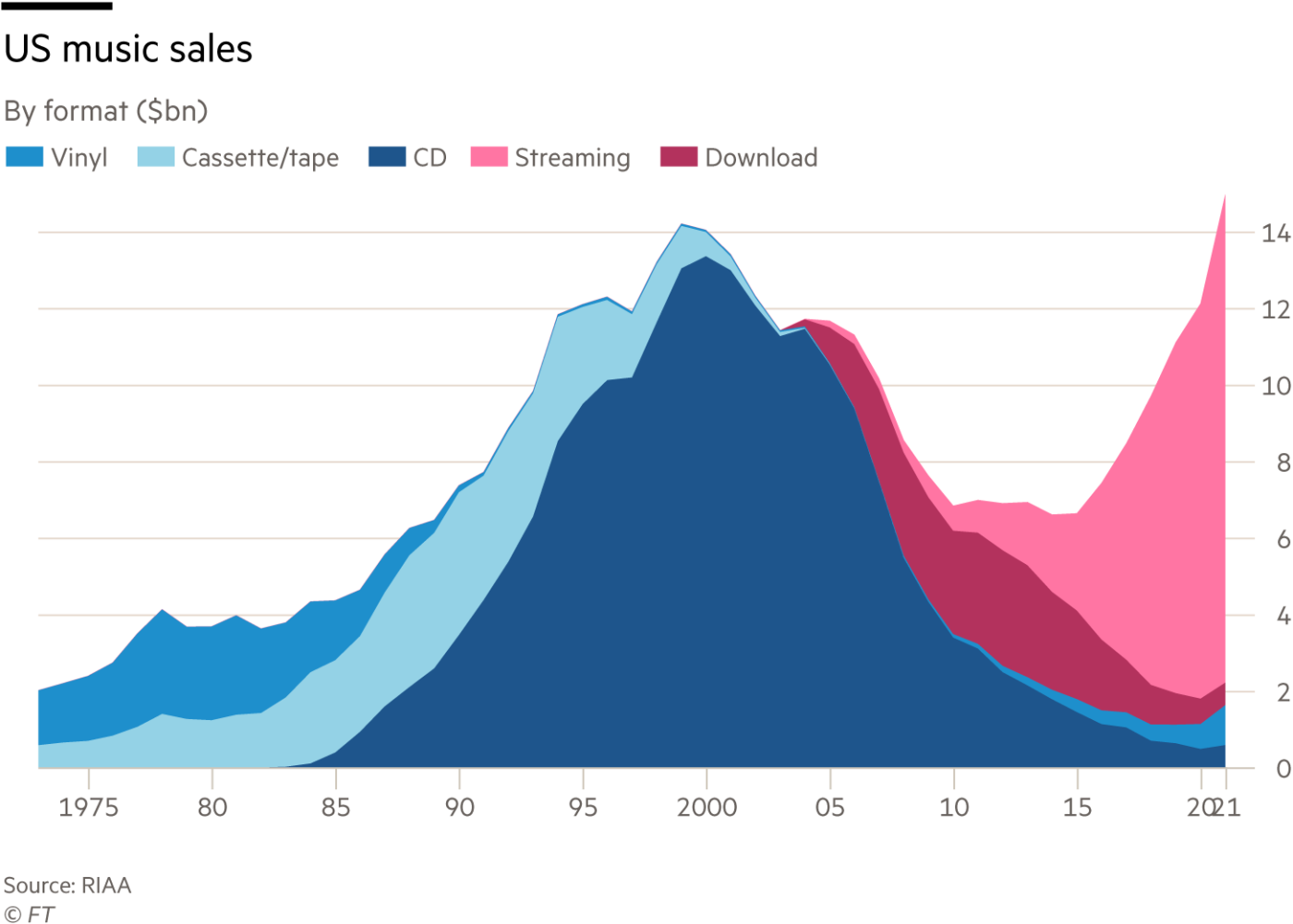RIP iPod. Apple’s pioneering music-in-your-pocket has gone the way of the BlackBerry, the 244-year-old Encyclopedia Britannica and the dodo. The Cupertino-based tech group this week said it was discontinuing the iPod Touch, its last remaining portable music device.
At 20 years, the iPod had half as long a run as Sony’s Walkman, its clunkier predecessor. The Walkman allowed 1980s cool kids to listen to music cassettes while rollerblading or doing aerobics.

Sony moved with the times, transitioning to the CD Walkman when compact discs sounded the death knell for those sticky tangled tapes. But the Japanese conglomerate initially balked at devices for streamed music, fearing cannibalisation of its record label business. All told, Sony sold some 400mn Walkmans, not far short of estimated iPod sales.
CDs, too, are virtual toast. Kicking off at the dawn of the 80s, the shiny discs peaked in the years spanning the millennium. The heydays were relatively brief but certainly longer than the blink-and-you-missed-it season of the laser disc, which briefly vied with video for viewer eyeballs.

Nostalgia and the enduring love of retro mean the iPod will not die from the collective consciousness. The Walkman survives in the Smithsonian and on online retailer eBay. A new generation of cool kids rediscovered vinyl. Even CD sales blipped up last year.
Some countries have stronger attachments to analogue technologies. BlackBerry phones enjoyed a brief renaissance in Indonesia. Outsized faxes continue to whirr across China and Japan. The latter, home to some of the most cutting-edge technology on the planet, struggles to wean itself off museum-era gadgetry. Sony stopped making Betamax tapes — the technology trounced by the VHS format — only in 2015. Local authorities and banks were still using floppy discs last year.
Of course, it’s just possible that this is more about quality than sentimentality. After all, the US military, reliant on floppy discs for its nuclear arsenal, pulled the plug on those only a couple of years ago.